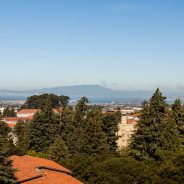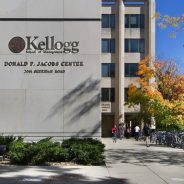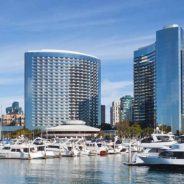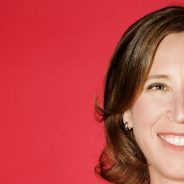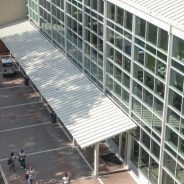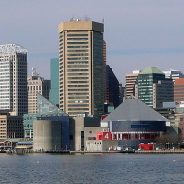Search results for :
Searching for the Perfect 1-Year MBA in Boston
Not everyone has two years to dedicate toward earning an MBA. For some, maybe a year is just a better option. Luckily, Boston has more than enough options for those who would rather trek down the one-year path.
Currently, Boston is the 20th most populous city in the U.S., with its historical roots grounded in advanced academia. It has proven to be a perfect home for students, with a population that skews young. Almost one out of every three residents is between the ages of 20 and 34.
The largest employers might be hospitals like Brigham & Women’s Hospital or Massachusetts General Hospital, but the coastal city’s true jewels are its universities like Harvard and MIT. While most schools in the area offer MBA programs, not all offer options that’ll allow students to graduate with an MBA within one year. Below, we outlined some of the best Boston 1 Year MBA program opportunities.
F.W. Olin Graduate School of Business — Babson College
The F.W. Olin Graduate School of Business isn’t too old; it’s been around since 1947. Students can take its one-year MBA program on its main campus in Wellesley, Massachusetts. It’s about 14 miles away from Boston, so students will still be just a short drive away.
The program takes 12 months, but students can build close bonds with each other in this short period of time. This program’s participants operate as a cohort, but they also get the chance to mingle with some students in the school’s two-year and evening MBA programs. All MBA candidates have the opportunity to participate in Signature Learning Experiences, a hands-on approach to education that prepares students for real-world situations.
Sawyer Business School — Suffolk University
The Sawyer Business School isn’t as old as the university, but that hasn’t stopped it from getting recognized. The school began to offer an MBA in 1948 and never quite began to offer a formal one-year MBA program, but it does offer accelerated ones.
Sawyer has a couple accelerated MBA programs: one for attorneys and for certified public accountants. The way it works is that students enter the program with credits already under their wing. The catch is that students complete a certain number of credits in the business school—but these could have been before chasing an MBA. It all really depends. That’s 37 credits for attorneys; 34 for CPAs.
MBA candidates with an interest in law can also learn a concentration while at the school. Courses include an immersive, travel seminar. As for CPA candidates, their curriculum is nearly identical to the attorney pathway. The only difference is one class required for the attorney curriculum and not the CPA: Corporate Financial Reporting and Control.
Sloan School of Management — MIT
MIT may mostly be known for tech industry and Good Will Hunting scenes, but its Sloan School of Management is frequently ranked as one of the best in the world by esteemed publications like The Economist. While Sloan doesn’t exactly offer a one-year MBA, its MIT Sloan Fellows Program only takes one year—and fellows walk away with an MBA.
The school calls the program a “change-the-world toolkit.” Mid-career managers from around the world are invited to apply for the fellowship. Once accepted, fellows arrive in April and begin their journey together. They take summer courses, fall courses, and some during the spring too. There’s an optional independent activities period where fellows can take part in a four-week term made up of how-to sessions, forums, or tours for 12 credits max.
Berkeley Haas Opens Fall 2017 With Its Largest Full-Time MBA Class Ever and New Building
Like many top business schools this time of year, the Haas School of Business at the University of California at Berkeley is welcoming its incoming class of MBA students—but at Haas it’s a bigger group than ever before moving into brand-new digs that promise to be among the greenest in the nation.
There are 284 students in the entering class—32 more than last year—which brings what has long been the smallest leading business school more in line with some of its peers. Plans for next year include additional expansion, to a class size of 300. The grand opening of a new academic building—in progress for the past decade—made increasing the class size possible.
“The intimacy of the class is really an important part of what Haas is about,” Dean Richard Lyons acknowledged in a June interview with Clear Admit. But at just 250 students, where the school has hovered for many years, it has been a gross outlier—a mere third the size of Wharton and not even a third the size of Harvard. “Part of the reputation of the school is a function of its scale, and there are times where you are just not at the right reputational scale—you’re too small,” Lyons continued. “It’s a super intimate experience—there’s no question about that—but target companies want to go to a place where there are enough people graduating that they can send a team of recruiters, for example. If you are too small you are below the threshold.”
“We Don’t Want to Lose the Smallness That Makes Us Unique”
Precisely because the intimacy and close-knit nature of Haas is such an integral part of its culture, the administration, including the admissions team, has approached the process of increasing the class size carefully and thoughtfully. “I think people would be surprised by the amount of care that has been taken to consider potential ramifications,” Peter Johnson, assistant dean for the full-time MBA program and admissions, tells Clear Admit, adding that his team considered necessary adjustments of everything from budgets to graduate student instructors, program office staff to career coaches. “We have been very intentional about it because we don’t want to lose the level of smallness that makes us unique. A lot of our students were very concerned that it not change the experience for future students.”
Not only is the incoming class larger than any before it, it is also one of the strongest academically, Johnson says. Average GMAT scores and GPAs have risen over each of the past three years. The average GMAT score this year was 725—a jump from last year’s 717—and the average GPA climbed, too, from 3.64 to 3.71. Application volume also increased this past year, which meant that though the school admitted more students overall to increase class size, the acceptance rate remained constant at 12 percent. HBS, by comparison, generally accepts approximately 11 percent of its applicants.
The incoming class includes 40 percent women, up slightly over last year though still off from the record 43 percent that made up the Class of 2016. International students drawn from 42 different countries make up 39 percent of the class, up from 38 percent last year. Haas leads HBS, Wharton, and Kellogg in this metric, whose incoming classes are all around 35 percent international. Despite concerns that talk of potential immigration and visa reform under the current administration could have a chilling effect on international application volume, applicants from abroad applied in equal numbers this year as last, Johnson notes. U.S. minority students comprise 29 percent of the class, down from 32 percent last year.
In terms of what they did before coming to Haas, members of the Class of 2019 are an incredibly interesting bunch. Among them are a business development manager from Intel who led development of Google’s self-driving cars, an investment banker who ran from San Francisco to New York City over the summer to raise money and awareness of ALS in honor of his grandmother, a Bain consultant who earned four culinary diplomas in her spare time, a student from Nepal who helped senior political leaders and ex-ministers from five major parties negotiate a new constitution, and the founder and CEO of an Indian irrigation company that saves 4 billion liters of water annually while enabling smallholding farmers to produce 10,000 additional tons of food per year.
A quarter of the incoming students worked in consulting prior to Haas, and another 20 percent worked in finance. In terms of undergraduate degrees, 42 percent studied business or economics, 36 percent hold STEM degrees, and 8 percent graduated with degrees in the humanities.
“Top students from around the world with diverse backgrounds and amazing accomplishments continue to choose us for our distinctive culture,” Morgan Bernstein, executive director of full-time MBA admissions, said as part of an article on the Haas website. “No one else has the culture and community that we do.”
Can Chou Hall be the Greenest Academic Building in the U.S.?
The Haas Class of 2019 is the first to inhabit the newly opened Connie & Kevin Chou Hall, an 80,000-square-foot facility that boasts state-of-the-art classroom technology, flexible learning spaces, and features such as efficient heating, cooling, and lighting systems. These, in addition to rainwater cisterns and 24,300 square feet of exterior windows, helped it earn both LEED Platinum certification and WELL certification (an additional accolade applied to buildings that promote the health and well-being of their users).
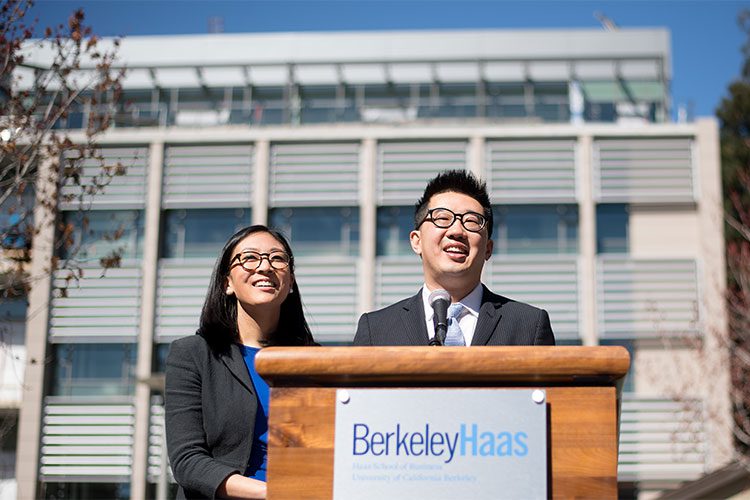
Kevin Chou and Dr. Connie Che appearing at the Berkeley Haas School of Business last March, after announcing their record-breaking school donation (Noah Berger/2017)
The building bears the name of Kevin Chou, BS ’02, founding CEO of mobile gaming company Kabam, and his wife, Dr. Connie Chen, in recognition of their $25 million donation, the largest to date from an under-40 alum. The remaining funds for the $60 million building also came entirely from alumni and friends of the school.
In addition to LEED Platinum and WELL certification, Chou Hall has been designed to divert 90 percent of waste—including through the mandatory use of reusable mugs and water bottles that can be replenished at filling stations and compost and recycling bins on every floor—which will allow it to achieve zero waste certification by summer 2018. This would make it the first business school in the country to do so.

Early-stage concept art for the Connie & Kevin Chou Hall.
There are no places to dispose of other types of trash—encouraging those who use the building to adopt a “’pack-it-in, pack-it-out’ mentality,” according to Courtney Chandler, senior assistant dean and chief strategy and operations officer. “It might take a little getting used to, but we don’t think it will be hard for the Haas community—we’re all about questioning the status quo and redefining business-as-usual,” Chandler said in a story on the Haas website, referring to two of the school’s defining principles.
The building includes eight tiered classrooms and four flexible classrooms, totaling 858 new classroom seats, as well as 28 student and meeting rooms. This provided the much-needed additional space Haas required to expand its class size. A sixth-floor event space will open next month, and a café offering sustainable, locally sourced food—what else—is slated to begin serving students in early 2018.
This article has been edited and republished with permissions from Clear Admit.
Getting Paid: Highest MBA Salaries in Chicago
Like most parts of the country, the U.S. heartland is undergoing a massive shift on all fronts, becoming more urbane, diverse, and open to outsiders than seemingly ever before.
Many communities are becoming increasingly diverse, attracting international residents at an unprecedented rate. Young, urban professional-types who once flocked to the coasts are now moving in droves to Midwestern cities, which were once dismissively filed under “fly-over territory.” Nowhere is this change more apparent than in the Windy City.
Chicago’s long been home to major players in media, education, finance, and food and beverage (shout-out to Giordano’s Deep Dish Pizza), but doing business in the city now also means something new. Like most major metropolitan areas, Chicago’s slowly dipping its toes into the tech game; the city’s home to Groupon, Grubhub, Orbitz, and Reverb.
So, take your pick, aspiring MBAs! When it comes to Chi-City, you’ll be a veritable kid in a candy store.
The 5 Highest Chicago MBA Salaries
Northwestern Kellogg School of Management
Northwestern Kellogg School of Management graduates earned average starting salaries between $106,000-$138,000, depending on their chosen industry. According to recent statistics, the four most popular industries to attract Kellogg MBAs were consulting (32.6 percent), where the starting salary hovers around $138,204 with a $29,375 signing bonus. MBAs in tech (22 percent) earned a starting salary of $119,713 with a $23,749 signing bonus. MBAs that specialize in consumer products (13.8 percent) earned an average starting salary of $106,052 with a $26,634 signing bonus. MBAs in financial services (12.8 percent) earned an average starting salary of $128,090 with a $32,100 signing bonus. Top employers of Kellogg graduates include: Adobe Systems, Amazon, Anheuser-Busch, Apple, Bain & Co, Bank of America Merrill Lynch, Boston Consulting Group, Cisco Systems, DaVita Healthcare Partners, Dell, Deloitte, Facebook, General Motors, Goldman Sachs, Google, JPMorgan Chase, Linkedin, Mars, McKinsey & Company, Microsoft, Nike, PepsiCo, among others
DePaul Kellstadt Graduate School of Business
Recent graduates from the DePaul Kellstadt Graduate School of Business posted record employment numbers for the school. According to an overview the school published, 92 percent of 2016 MBAs landed positions within 120 days of graduation. The average starting salaries for Kellstadt’s available MBA concentrations are as follows: Accountancy at $83,000; economics at $90,000; finance at $89,000; management at $83,000; marketing at $75,500; and real estate at $75,000. The most popular industries to attract Kellstadt graduates were accounting, financial services, manufacturing, health care, and consulting. Top employers include: Allstate, Bank of America Merrill Lynch, Boston Consulting Group, Deloitte, Deutsche Bank, GE Capital, General Mills, Google, Groupon, JPMorgan Chase, Microsoft, PwC, United Airlines, and Wilson Sporting Goods, among others.
Notre Dame’s Mendoza College of Business
According to statistics surveying the most recent MBA class, the average starting salary for Mendoza College of Business graduates is $105,000 with a $20,000 signing bonus. About 91 percent of MBAs received job offers within three months of graduation. The most popular industries to attract Mendoza MBAs are within tech (27.1 percent), financial services (18.8 percent), consumer products (14.6 percent), and consulting (11.5 percent). MBAs working in tech earned average starting salaries of around $110,000; financial services, $110,000; consumer products, $100,000; and consulting, $105,000. Top employers of Mendoza MBAs include: Deloitte, Procter & Gamble, PwC, Deutsche Bank, IBM, Discover, Allstate, IBM, Samsung, Amazon, American Airlines, ExxonMobil, Johnson & Johnson, AT&T, Kraft, Hershey, Heinz, Bank of America Merrill Lynch, Major League Soccer, United Airlines, General Mills, General Motors, Microsoft, GlaxoSmithKline, and Citibank, among others.
University of Chicago Booth School of Business
Chicago Booth School of Business graduates earned an average starting salary of $125,000, according to recent statistics. The top industries to attract Booth MBAs are financial services (36 percent), consulting (27.5 percent), and technology (16.7 percent). Booth MBAs working in financial services earn average starting salaries of $125,000 with a $40,000 signing bonus; consulting, $145,000 with a $25,000 signing bonus; technology, $125,000 with a $30,000 signing bonus. Top employers of Booth graduates include McKInsey & Company (7.1 percent), Boston Consulting Group (4.7 percent), Amazon (3.9 percent), Bain & Company (3.1 percent), Accenture (2.6 percent), Google (2.4 percent), Bank of America Merrill Lynch (2.2 percent), and PwC Strategy (2 percent).
University of Illinois at Chicago Gies College of Business
On average, Gies College of Business graduates can expect to start their careers in the $90,000 range with a $10,000 signing bonus. According to statistics supplied by the school, MBA grads have a 94 percent employment rate. The most popular industries are technology (20.3 percent), financial services (18.8 percent), consulting (15.6 percent), and consumer products (12.5 percent). Liautaud MBAs who took positions in tech started at $94,000; financial services, $87,857; consulting, $89,125; and consumer products, $95,800. Liautaud graduates work for a broad range of companies, but top employers include AT&T, Johnson & Johnson, Walt Disney, Amazon, Chrysler, Hewlett-Packard, Sears, Google, State Farm, City of Champaign, Bank of America, and Whirlpool Corporation.
MBA Alumni Spotlight: Nike Co-Founder Phil Knight – Stanford Graduate School of Business
Phil Knight, a graduate of the Stanford Graduate School of Business, didn’t become one of “the most powerful person in sports” overnight. The co-founder and chairman of Nike, Inc., the world’s most successful sports apparel manufacturing company, saw a lengthy and uncertain career filled with hurdles before amassing tantamount success. Continue reading…
How Emory Goizueta Helps Underprivileged Students Earn an MBA
When you decide to apply for an MBA program, there are a number of new questions you’ll need to answer. Where would be the best place to earn the degree? What program best fits my career needs? What should I focus my business school studies on?
Among all the other decisions a prospective MBA will need to make, how to pay for the degree may be the last thing on their mind.
It’s no secret that the cost of an MBA—plus the lost income while earning your degree—is intimidating for many prospective students. Many students may choose not to earn an MBA or not to apply to a school that fits their skill and needs due to the price tag. If this seems unjust to you, you’re not alone. Many business schools have committed to making their programs accessible and affordable for low-income students.
The Goizueta Business School at Emory University is just one of those schools, offering a number of loan and scholarship opportunities to help students pay for their degree. Below, we’ve rounded up some of the ways Emory helps to ensure all students—regardless of income—can earn a Goizueta MBA.
How Underprivileged Applicants Can Earn An Affordable Emory MBA
Grants & Scholarships
Grants and scholarships offer students an extremely valuable and all-too-often underutilized opportunity to pay huge portions of tuition without the frustrating proposition of paying it back later. Such funding can be based either on academic merit or financial need.
Tuition Credits: There are a number of tuition credits available for students who fall into specific categories, such as Emory University Alumni, Graduates of the Goizueta Business School Executive Education Program, active duty military and veterans, and applicants working full-time at a 501(c)(3) non-profit. Emory Employees and dependent family members may also be eligible for tuition credits, depending on years of service.
Veteran’s Education Benefits: Veterans and the dependents of veterans may be eligible for monthly education benefits, such as tuition remission. Students looking to receive Veterans benefits who also need additional sources of funding may still do so, and the benefits received will not be considered when determining financial need.
Scholarships: Goizueta offers students the chance to earn a number of potential scholarships based on merit. Many scholarships are offered through partnerships with Atlanta professional organizations. These include:
- Georgia Hispanic Chamber of Commerce: Two $25,000 scholarships
- Department of Health & Human Services: Thirty percent discount on tuition for qualified individuals
- National Association of Asian American Professionals: Two $25,000 scholarships
- Women in Technology: Two $25,000 scholarships
There are also a limited number of honorary scholarships awarded to students after enrollment. The MBA for Executives Class Gift Scholarship, originally endowed by the class of 2005, is offered to students in a professional or field generally underrepresented in the EMBA program. Also available is the Executive Women of Goizueta (EWG) Scholarship, given to accomplished female executives in the Goizueta MBA for Executives program.
Loans
Graduate Loans: Those attending business school are afforded the same federal loan offerings as students starting undergraduate programs. Students may fill out the Free Application for Federal Student Aid (FAFSA) to help determine their financial need and eligibility. Each year, students should fill out a new FAFSA form to reevaluate their need. International MBA students are also eligible for certain types of student loans, which can be explored further here.
Researchers at Columbia Business School Address MBA Gender Gap
Over the last few years, top business schools across the world have worked toward gender parity in their MBA programs—with considerable progress. Many MBA programs now admit more than 30 percent women, and a growing number of leading schools top the 40-percent mark. But amid these strides, another problem has emerged: an academic performance gap between male and female students. Recently, researchers at Columbia Business School (CBS) dug into the gender performance gap issue to understand why it happens and how to fix it.
After completing multiple empirical studies, including a survey of MBA students and a review of performance data, the researchers found that both students’ background and their behavior in class have the biggest impact on the gender performance gap. Further, the researchers found that the performance difference was most evident in technically focused classes, such as accounting and finance, and less so in socially oriented courses, such as leadership and marketing.
According to Michael Morris, CBS Leadership Professor and one of the study’s authors, the findings shed “new light” on the gender performance gap at top business schools. “But more importantly, they offer business school leaders directions for policies to effectively redress the grade gap,” he continued in a press release.
The researchers found that one of the main reasons behind the performance gap in technically oriented classes was the students’ background. After examining reported interests in both admissions applications and career counseling inventories, the researchers found that female students are more inclined toward the “poet” interest profile, while male students are more inclined toward the “quant.” For top MBA programs, this means that from the first day of class, male and female students come in with different interests, aptitudes, and experiences that will need to be addressed in order to break gender norms.
Gender norms were also a problem when it came to behavior in the MBA program. Researchers found that female students were typically less assertive, which hindered their learning in technical courses.
“Our research shows that female students far too often hold back and hesitate to ask the kinds of questions that would help them better master technical concepts and procedures, perhaps because it is inconsistent with the established gender norms linking men with technical ability. This has a profound effect on their overall achievement in MBA classes,” said author Aaron Wallen, Executive Director of the Management Division at Columbia’s School of Professional Studies and a former CBS lecturer.
To truly close the gender gap does not simply mean enrolling 50 percent female students, the researchers noted. Instead, top MBA programs also need to do the following three things:
- Sponsor programs that bring in more technically oriented female candidates.
- Conduct outreach to STEM undergraduate programs.
- Reduce required work experience to enroll younger students.
They also recommended including a training program for both faculty and students to teach them the skills for eliciting and managing participation in the classroom and other work settings.
To learn more about the research study—authored by CBS Professors Wallen, Morris, and Jackson G. Lu and INSEAD Professor Beth A. Devine—click here.
This article has been edited and republished with permissions from Clear Admit.
Graduate With A Dual MBA Degree at Northwestern’s Kellogg School
When going for that MBA, why not just go for two graduate degrees? That’s possible at Northwestern University’s Kellogg School of Management.
The business school, tucked inside Chicago, offers two dual MBA programs. Some of its graduates have gone on to work for Amazon and Microsoft. Plus, living in Chicago is a bonus.
The Windy City has vibrant arts, food, and comedy scenes, as well as a growing number of traditional career opportunities. Though the state of Illinois is suffering financially, Chicago saw a jump in employment following the Great Recession. The city is also home to headquarters for some of the biggest banks in the country.
Really, isn’t deep-dish pizza all a person needs though? Candidates can enjoy some Chicago-style pizza (if they’re into that kind of thing) while studying hard to achieve that dual degree.
Masters of Science in Design Innovation (MMM)
According to the school, this program is the first of its kind. Graduates walk away with their Kellogg MBA—and a Masters of Science in Design Innovation from Segal Design Institute at the McCormick School of Engineering and Applied Science.
That’s a steal. Especially given that this takes no more than two years. Candidates who want to build a successful business with a strong focus on design should really benefit from this program. Some design tools students learn while at Kellogg include user-centered research methods, prototyping, and implementation.
But every student has a specific interest. The program’s electives allow participants to hone in on whatever skills they need to succeed. These courses can look like programming design or even whole-brain communication.
“The MMM program challenges me to be more dynamic: in thought, in understanding, and in action,” Kellogg student Vikram Raju said on the school’s website.
The Kellogg MMM is a full-time program, offering classes during both the day and evening.
JD/MBA Program
This program is tailored specifically to the business-savvy with an interest in law. The JD/MBA program offers graduates a Masters of Business Administration from Kellogg, as well as a Juris Doctor from the Northwestern School of Law.
Again, Kellogg set an example with this program: It’s the first kind in the U.S. Be it for someone who ultimately wants to do law or someone who wants to hold a unique set of business skills, the JD/MBA program uniquely positions its graduates for the real world. Law firms, corporations, and nonprofits look to Kellogg’s JD/MBA graduates. Some alumni even go onto elected office.
“This program attracts people who are leaders,” JD/MBA student Adina Lord said on the program’s website.
This program takes three years (one year more than the MMM), but it’s worth it. The average student takes five years to achieve these degrees separately.
While working toward the MBA, students can choose an expertise: accounting, economics, and marketing, among others. Then, there’s the legal background on top. And the practice is hands on.
While at Kellogg, students can work with Northwestern’s Entrepreneurship Law Center, Global Lab, or Venture Lab. All these resources give students experience they need to attract future employers. The Law Center connects students with small businesses, where they can give businesses legal and strategic consulting.
Alumni Spotlight: JPMorgan Vice President Juan Solis, Quinlan MBA
The Loyola University Chicago Quinlan School of Business recently took a look at the life and career of 2008 MBA graduate Juan Solis, the current Vice President of JPMorgan Chase. A short interview touched on a few topics, including why Solis chose Quinlan, and whether he had any advice for current or prospective MBAs. Continue reading…
Getting an MBA in San Diego Without The Full-Time Commitment
Despite the obvious return on investment, not everyone has two to three years to devote to earning their MBA. Pursuing an accelerated MBA may be a wise choice for students unfazed by a rigorous workload. An accelerated MBA provides is an attractive alternative to longer programs. Fast-tracking your degree will cut both costs and time, and allow you to propel your career forward as quickly as possible.
For those hoping to bring a comprehensive knowledge of business fundamentals to their industry without the daunting time commitment, we’ve laid out a couple of the best San Diego accelerated MBA programs.
Fermanian School of Business – Point Loma Nazarene University
The Fermanian School of Business at Point Loma Nazarene University offers a One-Year MBA for students looking to obtain their degree with efficiency. The daytime One-Year MBA halves the time of the Evening MBA, which takes 24-28 months to complete. This track requires students to earn 42 credits, as well as participating in a Field Experience. The Field Experience thrusts students into an business environment, wherein they have the opportunity apply their classroom knowledge to hands-on company work. This program is designed for recent graduates. In addition to taking the One-Year MBA, students who can commit more time to the program have the flexibility to take on more courses and obtain their degree more quickly.
This program helps promote the university’s core Christian values, specifically geared toward students aspiring to use their education to actively better their community. Fermanian integrates the what they believe are the core categories of career success into their curriculum: business knowledge, hands-on experience, purpose and networking. Even the school’s concentration options demonstrate their commitment to developing upstanding leaders. Students can pursue a concentration in Healthcare, Sustainability, Organizational Leadership, or Not-for-Profit. Another distinguishing facet of this program is its unique elective options. Fermanian even offers a gold class to help students with networking.
Alliant School of Management – Alliant International University
The Accelerated MBA at Alliant School of Management is offered to students that meet specific requirements. Only Alliant undergrads qualify for this track, and they must be pursuing either a B.S. in Business Administration or a B.S. in Political Science. They must also maintain a GPA above 2.75. Though the number of students who meet these specifications is limited, those who are eligible for this track can complete their MBA in as few as two semesters.
The program entails the following bridge courses students can take during their senior year: Organizational Behavior and Global Leadership, Statistical Analysis and Modeling for Business, Strategic Management and International Marketing Management. In order to transfer these courses into the MBA program, students must obtain a B or higher in each one. Since students in this program take MBA courses while they are still undergrads, they will have completed for of their required fore classes by the time they officially enter the MBA program.
Alliant is particularly supportive of veterans. The school has made the “Military-Friendly Schools” list in GI Jobs magazine three times, and has been on the Military Times EDGE magazine’s “Best for Vets Colleges” list twice.
Getting Paid: The Highest MBA Salaries in DC
Our nation’s capital is more than just Hollywood for craven people.
Deciding Which Seattle Marketing MBA Is Right for You
Seattle is, easily, one of America’s fastest growing cities. Just in one year, from 2015 to 2016, the city’s population increased by 21,000 people, according to The Seattle Times. That’s 57 people a day, on average.
It’s no surprise people are flocking to Seattle. Amazon, Nordstrom, and Starbucks have headquarters there—and Amazon has been busy hiring like crazy. Companies like Microsoft and Boeing are only contributing to this growth too. But beyond the economic and population growth, Seattle is beautiful. Famous for its lush mountains, Seattle provides a view of Mount Rainier from just about any point in the city.
Its progressive policies—like providing a $15 minimum wage and legalizing the use and sale of cannabis—also make the city appealing for young people who are curious about where to start their family or career.
It’s the perfect place to build a life—after that MBA you’ve been thinking about. Three programs, in particular, offer competitive marketing MBA programs. Perhaps they’ll land candidates a job in the tech industry where Seattle employees are the “second-best paid techies,” in the U.S, according to The Seattle Times.
Seattle MBA Programs with a Focus in Marketing
Albers School of Business and Economics — Seattle University
The Albers School of Business and Economics dates back to 1976 when the school was renamed to honor the contribution of Eva and George Albers. Since then, it’s garnered a number of accolades. Most recently, The Princeton Review included the school in its 2017 “Best Business Schools” publication. Albers offers different MBA programs, including an Early Career MBA, a Professional MBA, and a Leadership Executive MBA.
The Professional MBA program can be customized to meet a student’s needs. Two thirds of the required 54 credits consist of electives, so candidates can choose the classes they need to meet their career goals. Candidates can make marketing their discipline. The school offers 12 marketing electives. This program allows students to take two of the school’s 10 graduate certificates as part of their electives. Marketing is on that list.
The business school also gives specialized master degrees for accounting, business analytics, and finance. Its Master of Science in Business Analytics (MSBA) can give marketing candidates a competitive edge in learning data skills.
Foster School of Business — University of Washington
The Foster School of Business at the University of Washington has been around for 100 years. Yep, since 1917. In 2007, it took up the Foster name in honor of Michael G. Foster, who donated $36.5 million through his foundation.
This money went toward building the campus’ state-of-the-art facilities, a major perk for a public university. And this devotion the school has for its students has proven successful: Nearly 3,000 alumni have founded companies. U.S. News World & Report ranked its full-time MBA program number one overall in the Northwest and number nine overall among public universities.
The curriculum ensures candidates understand every facet to business: accounting, finance, strategy, and, of course, marketing. But the second year of the full-time program allows students to hone in on their chosen skill. For marketing MBAs, the program offers 12 electives, including one exclusively on data.
Seattle Pacific University School of Business, Government and Economics
The Seattle Pacific University School of Business, Government and Economics started teaching business in 1977. Its Christian background influences the way the school teaches business. Ethics and service are major themes.
The MBA program features seven emphases: cybersecurity, data analytics, finance, human resources management, information systems management, management, and social and sustainable enterprise. Marketing is a required skill in the curriculum. Marketing is included in the pre-MBA courses required to obtain the degree. For advanced courses, marketing analysis is required. The data analytics emphasis is a good place for those interested in marketing to look into. Data is key in marketing. Numbers tell a bigger story than one might imagine.
London Business School Professors Earn Thinkers50 Nominations
Two professors with the London Business School have gained some global recognition.
Professors Andrew Scott and Lynda Gratton have been shortlisted for a 2017 Thinkers50 Distinguished Achievement Award. Thinkers50 is responsible for “the world’s most prestigious ranking of management officials,” according to its website. More than 4,000 people were nominated.
Scott and Gratton are in the “Breakthrough Idea Award” category, which recognizes work that can radically alter the way people do business. The professors were nominated for their 2016 book, The 100-Year Life: Living and Working in an Age of Longevity, which breaks down how individuals should take advantage of humanity’s increased lifespan. “The 100-Year Life” draws on Scott and Gratton’s expertise in psychology—and economics. Finances, time, and relationships are among the book’s topics.
“Our research explores the reality of a multi-stage life with a variety of careers to include breaks and transitions, demonstrating how to make a gift from a long life,” Scott said in a press release.
Scott focuses on macroeconomics and has taught at Harvard and Oxford University. Gratton, on the other hand, specializes in organizational behavior, which she’s covered for more than 20 years. She was also named the best teacher at the school in 2015.
“Being shortlisted for this award is very exciting,” Gratton said. “A 100-year life means taking responsibility for the shape of one’s own life, rather than leaving it to the institutions of work and state that have governed many people’s situations for several generations.”
Check out the rest of the Thinkers50 shortlist, which also includes Aaron Hurst, CEO of Imperative and author of the 2016 book The Purpose Economy, former Apple executive and fellow author Nilofer Merchant, among others.
Winners for the Thinkers50 award will be announced at its gala November 13 in London.
YouTube CEO and UCLA Anderson Alum Susan Wojcicki Responds to Google Memo
Earlier this month, Google found itself in the midst of controversy after an internal memo from now-former employee James Damore was released to the staff. His out-of-nowhere diatribe claimed, more or less, that women are less biologically capable of being software engineers than their male counterparts. The document, titled “Google’s Ideological Echo Chamber,” was later released to the public, instantly causing scrutiny. Continue reading…
6 New Executive Education Programs Coming to Ivey Business School
The Ivey Business School at Western University in Toronto is revamping its executive education offerings, adding six new programs to address Canada’s evolving business sector.
“The Canadian business market has dictated to us the key competencies needed to remain relevant and successful in today’s global business environment,” said Mark Healy, Ivey’s Executive Director of Executive Education, in a press release. “I’m pleased to be able to address those needs with the launch of these six programs.”
The Ivey Executive MBA program already helps advance the careers of professionals, but these new additions will only further the school’s efforts. The programs will begin in fall 2017 and be offeredat the London and Ontario campuses, as well as Toronto.
Corporate Reputation Management
This “immersive” program will teach students how to plan for, respond and recover from situations where a business’ reputation is at risk. Once a company loses its rep, well, everything else goes down the drain, too. It’s important that professionals know how to handle those events.
Preparing for Disruption
One thing’s for sure: In business, always prepare for the unexpected. Sometimes, this looks like technological innovations. While good for the consumer, such change isn’t always good for a business. This addition will help participants look critically at their businesses and find any potential vulnerabilities or places where the market might negatively impact them—and then brainstorm to make sure that doesn’t happen.
Leading With Business Analytics
Data and numbers really are the future. This program will help businesses use these information to their benefit by showing them how other major players use data to stay competitive. Students will also learn the basics to some data analysis tools to stay in the loop themselves.
Mastering FinTech: Strategies for the Future
How does one protect themselves from the emerging FinTech market? Ultimately, those employed in the banking, finance or insurance sectors will benefit most because they’re the ones this technology threatens most. The program will show them how to create a proper response plan and even how to take advantage of this technology before competitors use it against them.
Design Thinking: Driving Innovation
Design is everything, they say. This couldn’t be more true in the world of business and customer service. This new program aims to teach participants all they need to know about using design to lead and ideate. This type of innovation is especially “crucial” to compete globally.
Many families pass their business down from generation to generation. There’s a science to doing that right. That’s where this program comes in. A successful transition requires specific strategies that address growth and trust. The Ivey School encourages families to take part in this program, but it requires a nomination.
Robinson Dean Elected as Board President for American Risk and Insurance Association
Georgia State University – J. Mack Robinson College of Business Dean Richard D. Phillips was recently elected as the president of the board of the American Risk and Insurance Association (ARIA), the premier academic organization focusing on risk management and advancement.
The Global MBA Experience in Dallas
Business certainly has no borders. As new technology makes it easier for people to connect on different sides of the world, having a navigable knowledge of international business practices can be a crucial part of building and growing your career.
While most MBA programs provide a strong foundation of business skills that help graduates as they enter an increasingly international industry, several programs offer students the chance to truly focus their degree in global business. Whether through MBA concentrations, majors, or joint degree programs, the ability for students to truly specialize their degree will allow for the next generation of business professionals to truly break down walls and make connections across the world.
A newly thriving hub of business in the country, the Dallas metro area is a perfect home base for beginning a career that can take you across the globe. Below, we’ve rounded up some of the top Dallas international MBA programs.
McCombs School of Business – University of Texas at Austin
While the McCombs School of Business does not offer a concentration in international business for their MBA degree, the school does offer a joint MBA and Master of Global Policy Studies, allowing students to graduate with two degrees after just three years of study.
The MBA/Master of Global Policy Studies was created as a response to the increased need for professionals with a deep understanding of the global environment, both within the public and private sphere. The dual degree program centers around a practical approach to global business, including direct and hands-on experience in the industry, offering graduates a competitive advantage as they enter the work force.
The dual degree requires students to complete 84 hours of coursework, including both MBA core courses and electives, as well as the MGPS’ core courses and specialization. The first year of the degree focuses on the GPS core courses, the second year on the MBA, and the last year a combination of both degrees.
Naveen Jindal School of Management – University of Texas at Dallas
Students at the Naveen Jindal School of Management may choose to specialize their MBA in International Management. Approaching global business through an interdisciplinary lens, the UT Dallas International Management MBA includes courses on marketing, cross-cultural management, finance, and strategic management. The courses help students to integrate business concepts with international policies/practices, preparing them for success in developing international ventures. The concentration may include courses such as:
- Regional Area Studies: Latin America, Western Europe, Asia, Africa, and more
- Global Business Ethics
- Export Market Planning
- Global Mergers and Acquisitions
Satish and Yasmin Gupta College of Business – University of Dallas
At the University of Dallas’ Satish and Yasmin Gupta College of Business, students may choose to focus their MBA with a concentration in Global Business. The degree program requires students to complete 42 credit hours and fourteen classes including both the required MBA core curriculum and classes in the Global Business concentration.
In addition to the MBA core classes, some of which already focus on global business and strategy, concentration classes may include courses such as:
- Strategic Global Marketing
- Import/Export
- International Financial Markets
- Global Immersion
University of North Texas College of Business
The MBA program at the UNT College of Business has a number of options for specialization, including an International Business Concentration.
The UNT MBA consists of a total 36 semester hours, 18 of which are focused on the broad foundational knowledge of an MBA. The additional 18 credits may then be focused on the concentration in International Business.
The Best of Baltimore’s Part-Time MBA Programs
Committing to graduate school can be both exciting and daunting. Earning an MBA gives aspiring industry leaders an undeniable competitive edge, but going back to school full-time can bring other areas of students’ lives to a screeching halt.
Fortunately, many schools offer part-time MBA programs that allow the flexibility to maintain their career and family commitments while still continuing education. Choosing a program that is the right fit is essential to success. That’s why we put together a rundown of the best part-time MBA programs in Baltimore metro.
Carey Business School — Johns Hopkins
The Carey Business School at Johns Hopkins recently expanded its Flexible MBA track to include more online opportunities. Students opting for the Flexible MBA generally complete their 54 credits over the course of three years. An online or online-on-campus hybrid format for students with concentrations in Leading Organizations, Financial Businesses, or Health Care Management. Students pursuing the on-campus option enroll in eight-week sessions that take place Monday through Thursday from 6-9 p.m. in the evening. Carey offers classes on both the Baltimore and Washington DC campuses. Graduates of the Flexible MBA have gone on to hold powerful positions in companies like AT&T, UBS, and World Bank.
Perdue School of Business — Salisbury University
At the Salisbury Perdue School of Business, students can complete their part-time MBA in two years. Perdue offers a 100 percent online program as well as an online-on-campus hybrid. This MBA curriculum includes access to the SAP University Alliance Program, a global network that allows students and faculty to integrate SAP technologies and resources into the classroom. Gaining this technological know-how may give graduates an immediate edge in the marketplace. The program is excellent for students looking to completely shift trades, or aspiring to pursue the business side of an ostensibly unrelated area. Perdue’s MBA does not require that applicants have an undergraduate degree in a business-related field. In fact, Perdue has embraced students with undergraduate degrees in fields like archaeology and art history.
Sellinger School of Business — Loyola University Maryland
The part-time MBA at Sellinger School of Business is designed for students already balancing full jobs. Business school students on this track take their classes in the evenings, after the work-day is finished. Selling offers hybrid and online options for those who cannot consistently make it to campus for their classes. This program is ideal for students who would like to begin their business education on their own time frame, as applicants can enroll at the beginning of any term. Sellinger boasts an emphasis on “reflections, discernment and ethical commitment,” that distinguishes the program from many others.
Merrick School of Business—University of Baltimore
The Merrick School of Business Flexible MBA upholds University of Baltimore’s emphasis on offering programs that let students continue their educations without putting their lives on hold. All of the classes in this program take place in the evening, and 50 percent of the course are offered online. Courses are offered in seven-week terms. Students in this program set their own pace, and those in different time zones are not at a disadvantage, as online courses are offered in an asynchronous format. Students in the Flexible MBA can choose a full-time or part-time course load, without notifying anyone or navigating any administrative channels.
University of Maryland R.H. Smith School of Business
Students earning their MBA through the R.H. Smith School of Business at the University of Maryland’s part-time program have the benefit of an extremely flexible pace. MBAs can finish their degree in 24 months, 28 months or they can set their own speed and take up to five years. Smith might appeal to those who wish to learn more about the international marketplace, as this MBA program integrates global experiences into the curriculum. Students can choose to attend classes on University of Maryland’s Baltimore, Washington DC, or Rockville/Shady Grove campus. This program was ranked among U.S. News & World Report’s “Best Part-time MBAs.”
Georgetown McDonough Reveals International Business Diplomacy Honors Certificate
One the Washington DC metro’s most prestigious business schools has added another potential offering to its Evening MBA students. According to a recent press release, Georgetown University’s McDonough School of Business has announced its International Business Diplomacy Honors Certificate will now be extended to those seeking their MBA at night. Continue reading…


